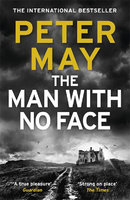New, Quality Gift Books - 50-90% off - over 2500 titles
Your basket is empty.
Categories Last Chance to buy! QUEENS OF JERUSALEM: The Women Who Dared to Rule
QUEENS OF JERUSALEM: The Women Who Dared to Rule
Book number: 92734
Product format: Hardback
In stock
Bibliophile price
£6.50
Published price
£20
Customers who bought this product also bought
|
GEORGE MICHAEL: The Biography
Book number: 92564
Product format: Paperback
Bibliophile price
£2.75
Published price
£9.99
|
I KNOW I AM RUDE
Book number: 93289
Product format: Paperback
Bibliophile price
£5.00
Published price
£9.99
|
MAN WITH NO FACE
Book number: 92779
Product format: Paperback
Bibliophile price
£4.50
Published price
£7.99
|
|
BRITISH MUSEUM BUDDHA
Book number: 93376
Product format: Hardback
Bibliophile price
£2.75
Published price
$15.95
|
WIVES OF GEORGE IV: The Secret Bride & The Scorned Princess
Book number: 93430
Product format: Hardback
Bibliophile price
£7.00
Published price
£20
|
HER EVERY FEAR
Book number: 93571
Product format: Paperback
Bibliophile price
£3.00
Published price
£7.99
|
Browse these categories as well: Last Chance to buy!, Historical Biography, Feminism, History







